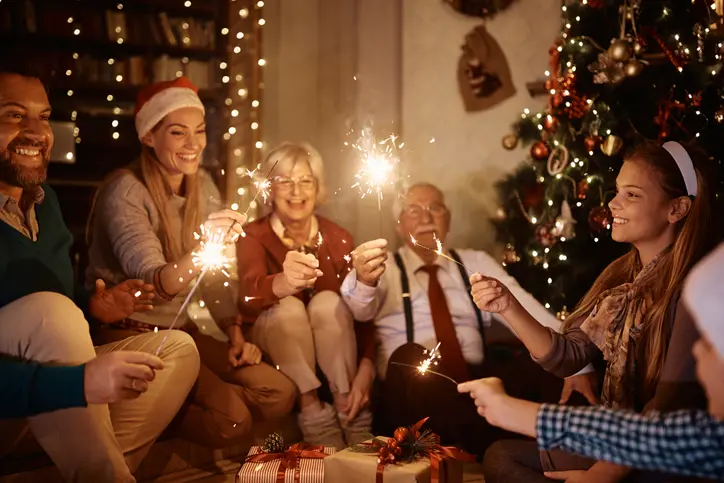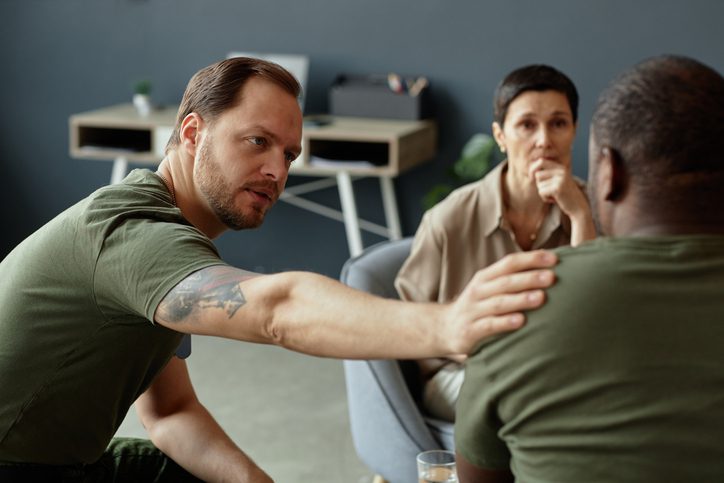Even if they love the holidays, people who are managing post-traumatic stress disorder (PTSD) can find this time of year difficult because there are potential triggers around every corner. At Tactical Recovery, we help Veterans and other people who have been diagnosed with PTSD to manage their mental health and substance use disorders, so that they can enjoy the special days–and the ordinary ones–as much as possible.
What is PTSD?
Post traumatic stress disorder or PTSD, is a mental health condition that results from a person experiencing things that were beyond their ability to cope. Traumatic events are closely linked to mental illness and addiction. Not everyone who goes through rough times develops PTSD, mental illness or substance use disorders. When the right support is available to help a person feel safe and secure, they are often able to process the challenges they face and then move on. When a person continues to feel or be unsafe, however, they may develop:
- Nightmares
- Flashbacks
- Avoidance toward people, places or things that remind them of the trauma
- Being on constant watch for threats and startling easily
- Numbness and detachment
- Negative feelings or feelings of guilt about what happened to them
What is a Trigger?
A trigger is something that causes a person to experience symptoms of their mental health diagnosis. These can vary from one person to the next, but for a person with PTSD, common triggers that come with the holidays include:
- Loud noises
- Being in a location where they experienced trauma
- Seeing someone who hurt them or someone who looks, sounds, smells, or acts like a person who hurt them
- Unwanted physical contact
- Being asked sensitive questions about their life by well-meaning loved ones
Ways to Handle PTSD Triggers at the Holidays
If you think you might experience triggers during a seasonal gathering with your loved ones, it is a good idea to have a plan for how you will cope. It might be wise to write down this plan and even share it with someone you trust to remind you what coping skills you wanted to use or to allow them to step in if things get overwhelming:
- Use your senses to ground yourself – Listening to music you love, watching a favorite movie, drinking a mug of hot chocolate, finding a soft blanket to snuggle with, or whatever else makes you feel safe and brings you back to the present can be helpful. You can also try practicing a simple mindfulness exercise like the 5-4-3-2-1 method.
- Flood your mind with positive thoughts – PTSD tends to fill the mind with pain, fear, and anxiety. By listening to affirmations, podcasts, and music that reinforce positive messages, you can drown out the unpleasant ideas.
- Release yourself from guilt – You are allowed to decline invitations, set boundaries, and stay away from people and places that have caused you harm. You aren’t obligated to do things that trigger you just to make someone else happy.
- Connect with nature – Before, during, and after big events are all great times to go for a walk, get some fresh air, and regain your sense of peace. Consider scheduling times to be outdoors throughout the holiday season.
- Focus on what is meaningful to you – Just because you don’t choose to accept invitations that don’t support your mental health doesn’t mean you have to be stuck at home by yourself. Domestic violence shelters, soup kitchens, group homes for children, hospitals, animal shelters, and nursing homes are just a few places that might be able to make use of your time and gifts.
- Prioritize self-care – If you are feeling pretty good going into the holidays, don’t abandon the strategies that have sustained your mental health. Whether it’s going to church, having a solid sleep routine, eating your veggies, or journaling, hold on to the practices that are working for you.
- Create new traditions – If you’re finding that your old traditions have become triggering, modify them or do something completely different. Perhaps you can’t go to the holiday event you used to attend because your abuser is invited or because you’re trying to stay sober and you know alcohol will be served. In such cases, you can talk to the host about making changes, or you can hold your own event. Or, you can use the day for quiet contemplation or find a recovery meeting to attend. You can binge Christmas movies in your pajamas. Do whatever works best for you and your recovery journey.
Our Tactical Recovery Program is PsychArmor certified to provide specialized treatment for Veterans who require behavioral health intervention.





